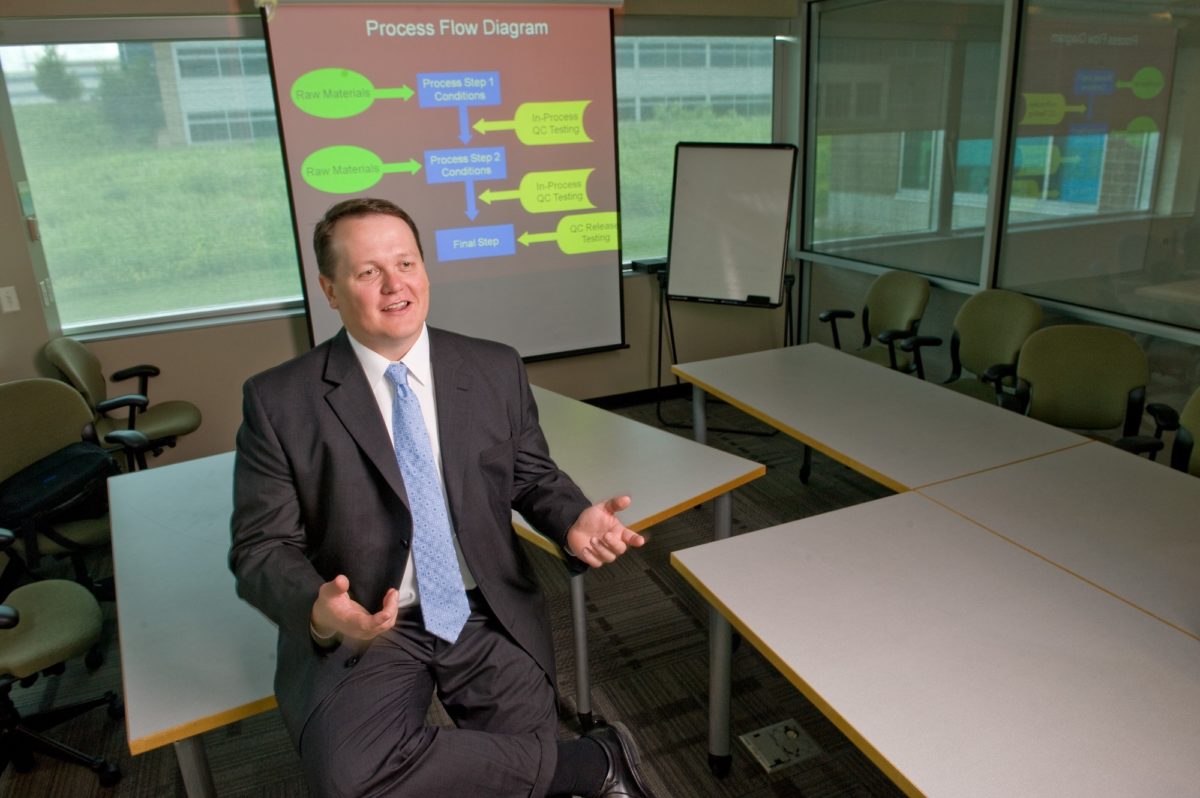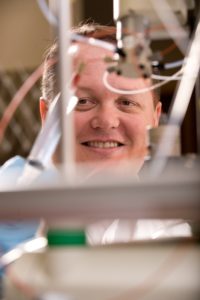
Charles Dokken had found professional success as the leader of a clinical lab, but he hadn’t found fulfillment. He simply knew he was capable of more. That’s why he enrolled in the University of Wisconsin–Madison’s Master of Science in Biotechnology Program.
Dokken suspected the program could ready him for leadership roles outside the research realm. He was right. After graduation, he became the director of global strategic accounts at Cynvenio Biosystems, a liquid biopsy company in the Los Angeles area, where he managed an international distribution partnership with Thermo Fisher. He then returned to Wisconsin to lead national technical sales for QIAGEN, a primary supplier of microRNA research products.
Dokken says these job opportunities were a direct result of the program, which provided ideal preparation.
“The M.S. in Biotechnology Program’s mix of business and science was exactly what I needed,” he says.
Industry-specific skills and knowledge

The M.S. in Biotechnology Program explores technology-driven entrepreneurship and product development through the lenses of business, science, and law. Taught by UW–Madison faculty, leaders of Madison-area biotech companies, and other industry experts, the courses delve into project management, molecular technologies, licensing, patents, and more. Classes take place on evenings and weekends, which makes the program an excellent fit for busy professionals such as scientists, attorneys, and business leaders.
Dokken originally considered MBA programs, but he was unsure if he’d gain enough information specific to the biotechnology industry. He was thrilled to discover that the M.S. in Biotechnology Program imparts industry-specific knowledge in a much shorter timeframe: two years rather than five.
“It was the right content, taught by the right people, at the right moment in my career,” he says. “And the business content was specific to biotechnology—completely aligned with the process by which new biotechnology products are developed.”
‘A game changer’
Dokken is especially grateful for the program’s skill-development opportunities. All of these skills—especially topnotch communication—help him thrive in his day-to-day work.
“I work with industry, pharmaceutical companies, and academia, so I have to be able to understand intellectual property, the science behind products, and business. I have to be able to collaborate and strategize. Above all, I have to be exceptional at communicating novel ideas to a variety of parties. These are all skills I developed in the M.S. in Biotechnology Program,” he explains.
For starters, the coursework required Dokken to communicate ideas clearly and thoroughly. Each semester he delivered four to five presentations, moderated panel discussions, and completed group projects that encouraged him to learn from fellow students.
“It became less nerve-wracking to give presentations because I was presenting in front of my friends,” he says. “When I started the program, I had a fear of speaking in front of people. Now that’s what I do for the majority of my job.”
In other words, the M.S. in Biotechnology Program gave Dokken the tools to succeed as well as the confidence. It even led to a tripling of his salary, which boosted his quality of life.
But most importantly, it helped him find fulfillment in his career.
“My job doesn’t feel like work to me. It’s fun and thrilling,” he says. “I wanted the M.S. in Biotechnology program to be a game changer for me, and it really was.”
Find out more about the Master of Science in Biotechnology Program. The program will accept applications for fall 2019 through May 1, 2019, or until the student cohort is full.